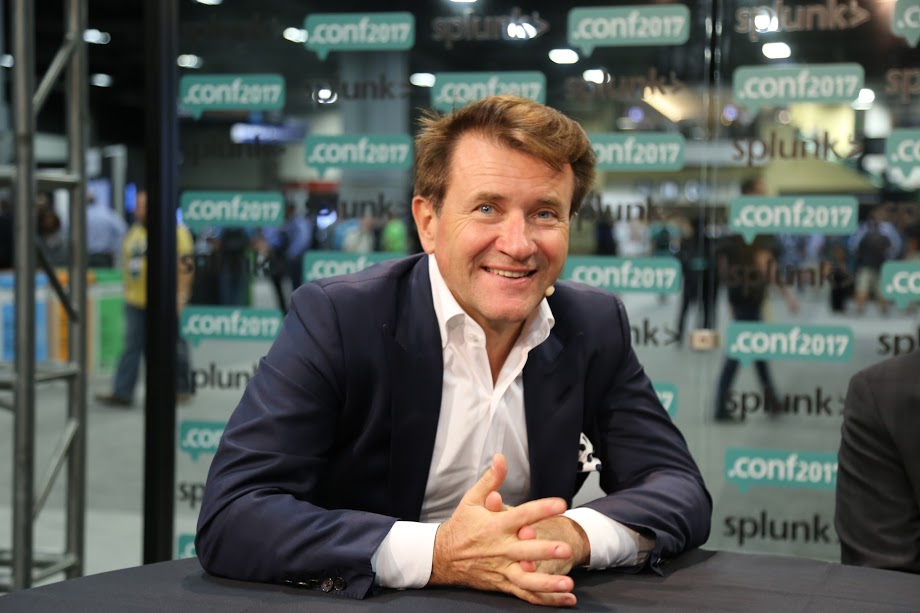 BIG DATA
BIG DATA
 BIG DATA
BIG DATA
 BIG DATA
BIG DATA
Robert Herjavec (pictured) is known to most people as a “Shark Investor,” one of the stars on the ABC TV show “Shark Tank.” On the show, he and other figures from the world of business hear pitches from budding entrepreneurs and decide whether to invest in a startup enterprise.
But what many people probably don’t know is that Herjavec, as the founder and chief executive officer of The Herjavec Group Inc., is a specialist in managed security services. His company provides cybersecurity consulting and incident response for enterprise companies around the world. And because of that role, Herjavec has a front row seat to observe the transformation taking place in corporations as CEOs and their boards deal with the rising tide of online attacks and data breaches that is swamping the globe.
For many years, Herjavec struggled to get executives to meet with him and discuss the need for stronger network protection. That’s not a problem anymore.
“The only way I could get a meeting with a CIO or CEO was because I was on Shark Tank,” Herjavec said. “Now I spend 80 percent of my time meeting not just with CIOs, but CEOs and boards.”
Herjavec and Atif Ghauri, senior vice president of customer service success at The Herjavec Group, were recently at the Splunk .conf2017 conference in Washington, D.C. The two stopped by theCUBE, SiliconANGLE Media’s mobile livestreaming studio, and spoke with co-hosts Dave Vellante (@dvellante) and John Walls (@JohnWalls21). They discussed new regulatory oversight, Splunk’s role in managing enterprise security, the evolving threat landscape and balancing security demands in a free society. (* Disclosure below.)
This week, theCUBE features Robert Herjavec as our Guest of the Week.
One of the factors driving the C-suite’s newfound interest in meeting with Herjavec and his team to discuss cybersecurity is the looming threat of state and federal regulation. The Equifax breach, in which highly sensitive financial information for 143 million people was stolen, has served as a kind of tipping point where Congress is now looking long and hard at passing new legislation that will make executives criminally negligent for knowingly ignoring system vulnerabilities.
“As soon as you use words like criminal, compliance and audit, CEOs and executives really care,” Herjavec said. “The regulations coming into cybersecurity are very similar to what we’ve seen with Sarbanes-Oxley [law mandating financial disclosures]. The message from the CIO has to be: ‘We’re doing everything in our power to be as secure as we can.’”
Heightened corporate responsibility carries its own problems for the simple reason that many of the security tools on the market today have failed to protect the enterprise. A recent report from Absolute and the Ponemon Institute found that ineffective endpoint security protection was costing businesses an average of $6 million annually and three-quarters of respondents lacked confidence that any of the tools would work.
One of the problems confronting network security managers is they are overwhelmed with event information. Every computing device generates logs, and when there are multiple devices, the amount of data scales quickly. To deal with chaos in the security products marketplace, companies are increasingly turning to “security information and event management,” or SIEM, which gathers all the information in a single place and correlates events across logs.
“People talk about artificial intelligence and better threat metrics and analytics, but the core foundational basis still is logs,” Herjavec said. “You have to manage your log infrastructure.”
SIEM has played an important role in giving security executives a better view of their enterprise landscape. In one particular example, the CISO of a public company used Splunk Inc.’s SIEM to reduce 12 billion events in a dashboard down to 140 actionable alerts.
The trend toward SIEM in the security world is worth watching for another reason. It is fueling speculation that Splunk may soon be acquired. Over the past three years, Splunk has generated more than 40 percent of its revenue from security markets, and last month, Symantec Corp. CEO Greg Clark openly speculated that its $9 billion valuation made it an attractive acquisition target.
“The beauty of Splunk is it does it better than anyone and gives you an upstream effect to do analytics,” said Herjavec, who is himself a Splunk SIEM customer. “We’ve been at the forefront of Splunk as a SIEM technology for a long time.”
Tools such as SIEM are gaining popularity in a threat environment that is rewriting the rulebook on an almost daily basis. The sheer size of information stolen in breaches, such as Equifax, Yahoo, the SEC, and Deloitte, are just one part of the issue. What has security experts worried is that the criminals are proving to be more innovative than the security industry itself.
“We’re dealing with people who are manipulating what we know to their benefit in ways we’ve never done it,” Herjavec said. He pointed to WannaCry as an example. The malware, initially launched as a ransomware attack in May, was accompanied by a powerful worm capability that allowed it to spread at lightning-fast speed across global networks. It infected computers across more than 150 countries and temporarily shut down some of Britain’s healthcare operations.
Will the new reality of global insecurity force changes in societal freedom? Some countries that limit online access don’t have the same level of issues with cybersecurity.
“We love giving people access to information, and data, and free speech,” said Herjavec, who expressed doubt that the U.S. would ever try to limit the open internet. “We’re never going to go to that, but we have to have better security just to stay even.”
Watch the complete video interview below, and be sure to check out more of SiliconANGLE’s and theCUBE’s coverage of Splunk .conf2017. (* Disclosure: Splunk Inc. sponsored this segment of theCUBE. Neither Splunk nor other sponsors have editorial control over content on theCUBE or SiliconANGLE.)
THANK YOU